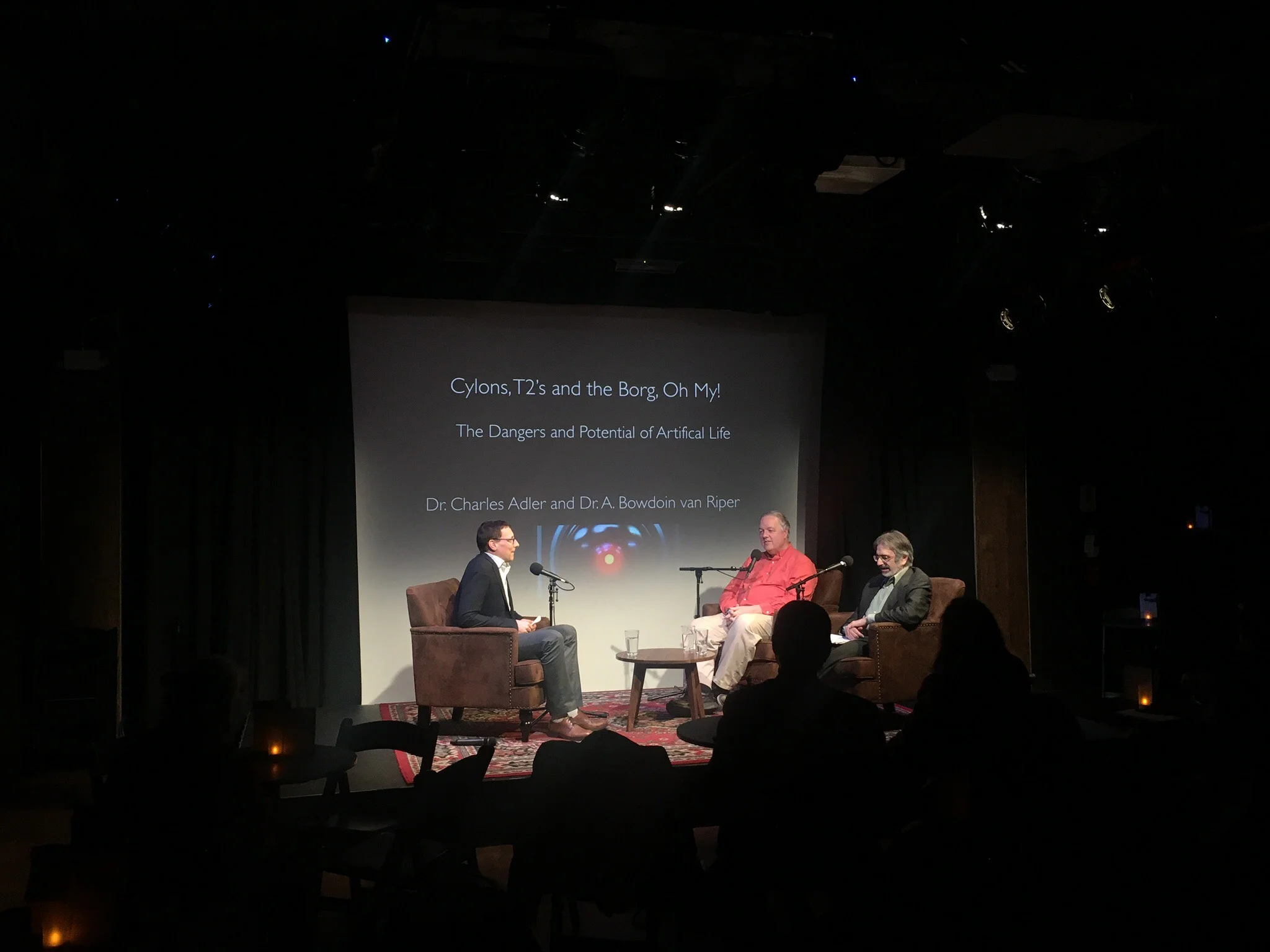by Yentl Dudink
Large enough to host a crowd up to 120 people, but intimate enough to feel like you should bring your grandfather for a scotch to discuss the state of the world, Caveat forms the perfect stage for a YHouse event. With its wood-panelled walls, easy leather armchairs in the corner, a Persian carpet on the stage, and a drink in your hand, you’re going on a comfortable night out whilst feeding yourself on new knowledge and insights.
Last Monday, I visited one of YHouse's recurring Chasing Consciousness events on artificial life for the first time, called “Cylons and T2's and the Borg—Oh My!: The Danger and Potential of Artificial Life.” Physicist Dr. Charles Adler and historian Dr. A Bowdoin van Riper were invited to tackle ideas from science fiction, world culture, science, and philosophy, as well as to pose answers to a variety of questions from the audience. The event was moderated by YHouse’s deputy creative director Sean Sakamoto.
Having a background in literature, culture, art, and social and organization sciences, I was curious to find out whether I could personally connect to the discussion. I was pleasantly surprised. As was stated in the beginning of the event, science fiction and artificial life are ways to test the limits of human creation. Anyone with a little imagination can explore these ideas.
Some of the questions posed were: What is going to happen when we create a robot that’s smarter than us? Will it still be our servant? What are the thoughts on love, sex, and robots? What happens if you fall in love with an AI (literally)? What will happen when workers are increasingly replaced by robots, and what will be its implications on class issues and the way we spend our time? What is the destiny of our species in terms of reproduction, when people are more prone to fall in love with robots than with each other? How do we approach deaths and dangers caused by robots? Who bears the responsibility for these deaths? AI has so many advantages and superintelligence is still far away, so are the anxieties and fictions in our own minds what need to be regulated rather than the robots?
The answers by Dr. Adler and Dr. van Riper were both illuminating and instructive; both optimistic and pessimistic. For example, Dr. van Riper explains that there is actual potential for human love and robots. Imagine we create a robot that passes the Turing test so well, it doesn’t even occur to you you’re not talking to another conscious being. A robot that cannot only gratify physical needs, but also our emotional ones. This only works when the robot has not developed into a conscious, sentient being, because then it would have human rights.
The event ended with the room getting up and getting into discussions with each other. This forms a great opportunity for networking, as well.
Next up in this series: Quantum Computing, AIs, and Us. 10th of April at Caveat. Purchase tickets here.

